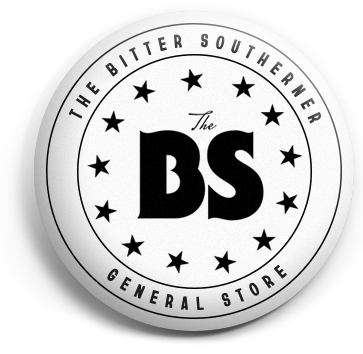
The Hand That Rocks the Needle
Kyle Martin’s KMM & Co. leather goods are designed with quality and durability in mind – plus a spirit that embraces imperfection.
Story and photos by Emma Sarappo
Kyle Martin graduated from Savannah College of Art and Design in 2010 with a degree in accessory design. Then he opened a leather accessories and goods company, KMM & Co. But the skills he employs each day in his workshop inside Citizen Supply at Ponce City Market didn’t all come from SCAD. Kyle had to teach himself to make the leather goods he sells by hand.
At SCAD, Martin said, “construction is not at all the most important thing. They expect when you graduate, you go design for a company.” That’s what he planned on doing as well – until he started working with his hands.
“As soon as I started actually crafting products – making prototypes, learning how to sew, and all this stuff – I realized it was much more satisfying than just drawing something on a piece of paper or on Photoshop or whatever,” he said. “At the end of the day, I had something I could put in my pocket.” So then, the challenge was teaching himself the skills to make goods by hand. He watched videos online and read books, including old Boy Scout manuals on leather working, but his love for leather culminated in an independent study class at SCAD where he focused on small leather goods. He realized that by producing those, “you can make something that will be with someone all the time.”


Small leather key fobs sit on display at the front of KMM’s retail space. The fobs are one of the company’s best-selling items; Martin stamps them with phrases like “ATL,” monograms, emojis and more.
Martin’s mission is to create durable, high-quality goods that can last decades or generations. “For example, you could to go somewhere like J. Crew and buy a tote bag – theirs are roughly $190,” he said. “Ours are $250. Ours are made with much better leather, they’re made by hand, they’re made locally. Those have a seam on the bottom, which makes it a two-piece bag. Ours are literally one piece folded up, so it can’t break. They, unfortunately, last forever, so you don’t ever have to buy another one – unless you just want another color.” Martin’s design ethos is based on things from the past; he creates minimalist designs that remain functional and will last for years.

This tote bag displays the brand of the cow the leather came from. “A lot of people choose to downplay the fact that it was ever a cow,” Martin said. In keeping with his philosophy, many of his goods retain their lived-in imperfections.
Martin said something about automation has always bothered him. That feeling was made clear when he visited the Martin Guitar factory in Nazareth, Pennsylvania. A self-proclaimed “guitar nerd,” Martin was disheartened by the lack of human interaction in producing the instruments. “Everything is so automated – it’s kind of dizzying,” he said. And, he said, their product is not as good as it was in decades past.
“It’s not that I’m scared of technology. I just think that if you’re laser cutting everything, it’s not really a handmade product anymore,” he said. He believes in the Japanese principle ofwabi-sabi, which he defined as “beauty in imperfections.” Goods with small flaws show that a human made them; they are unique. Still, even though there’s something beautiful in small mistakes, Kyle said another reason for stitching his goods by hand is that “there’s not a sewing machine that can replicate how well a hand can sew.”
That’s why Martin is conscientious about everything in his business – especially scaling. Too many of his competitors, he said, have sacrificed quality for the ability to make more product faster. When Martin was swamped with orders last holiday season, he decided to hire more hands and keep machines out of it. Marcus Orfield, his friend of almost 25 years, and his wife Juhyun now assist Martin full-time. Teaching them the trade has made him even more appreciative of it, he said.
| Check out Kyle Martin's leather goods in The Bitter Southerner General Store. |


Left: Martin demonstrates the “pull-up” on a bag made of high-quality chestnut leather. When bent, leather lightens in color. This bag’s pattern of pull-up came from being sewed inside out, handled and flipped when finished. Right: Martin stands over his work table. He’s used the same one for the past six years, with rubber mats and a cutting board to protect it, but said he’ll need to replace it soon – it’s beginning to crack.
Although Martin prides himself on quality, it can be hard to compete with machine-assembled pieces that are cheaper and more readily available. Martin recognizes KMM & Co.’s handmade goods appeal to people who are tired of what he calls “Walmart culture and throwaway culture.” This demand for local, handmade products isn’t new; Martin remembers it being a craze while he was in college. “I think it is a trend,” he admits, “but it is something that will be sticking around for a while.” In other words, he’s not worried about KMM’s future. “In some ways, it’ll always be there. It may not be as trendy, but when Amazon has a handmade section on their website, you know it’s actually something that’s projected to be around for a bit.”
Frances Mize contributed reporting.

All of the flippant sayings on KMM & Co.’s leather luggage tags are hand-hammered.


